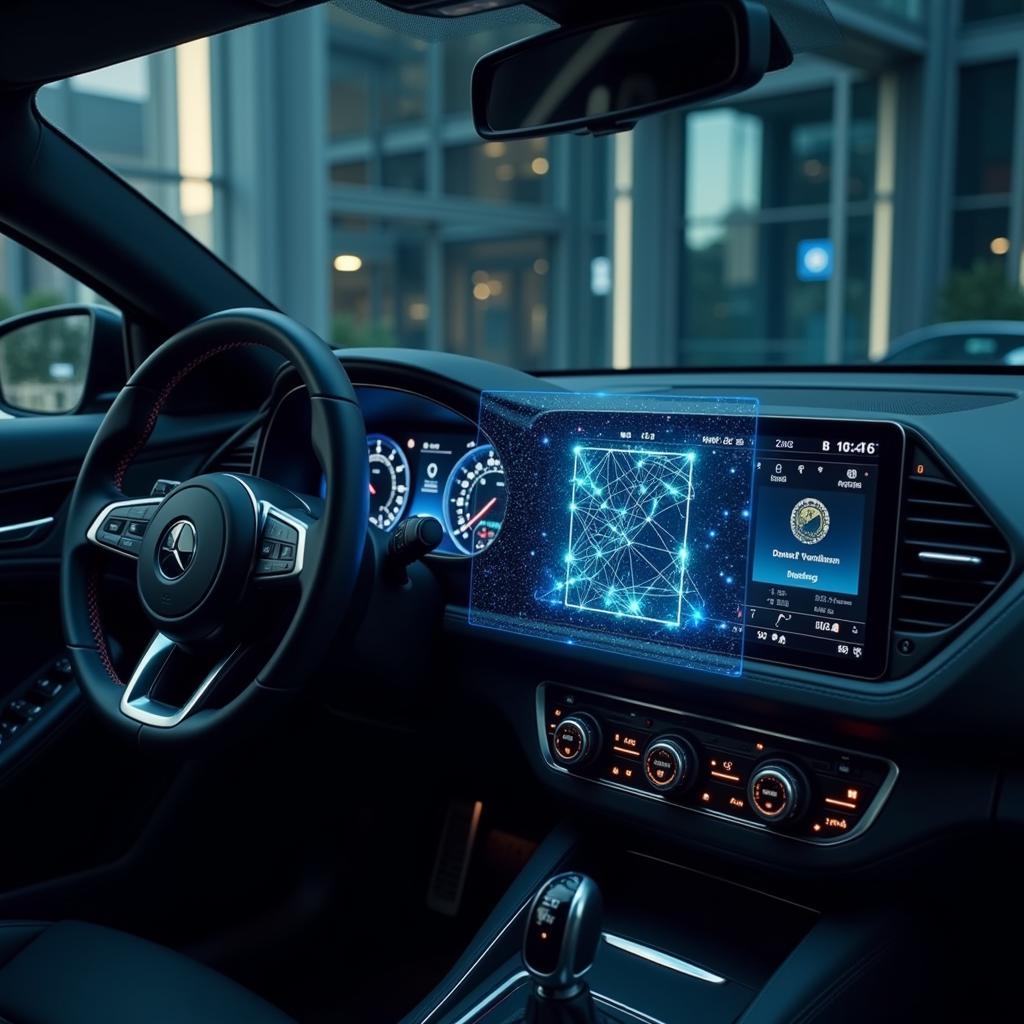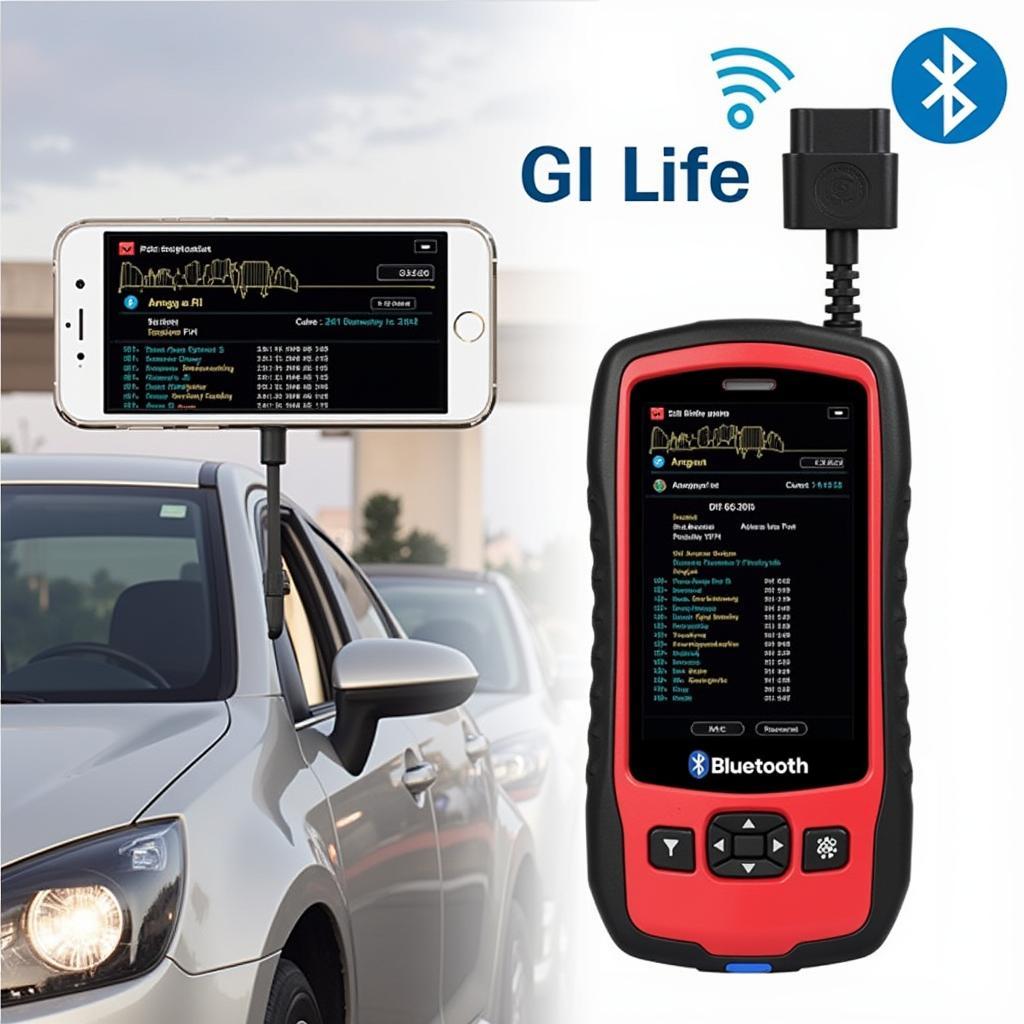Network Device Scanning Tools are becoming increasingly crucial for diagnosing and troubleshooting modern vehicles. Today’s cars are complex networks of interconnected electronic control units (ECUs) that communicate with each other over various protocols. Identifying these ECUs and understanding their roles is essential for efficient and accurate repairs.
Understanding the network topology of a modern vehicle is the first step in effective diagnostics. No longer can mechanics rely solely on traditional methods. Network device scanning tools allow technicians to quickly identify all ECUs present on the network, their addresses, and the communication protocols they use. This information is crucial for pinpointing the source of a problem, whether it’s a faulty sensor, a malfunctioning ECU, or a wiring issue. Furthermore, these tools provide access to real-time data, allowing technicians to monitor the performance of various systems and identify intermittent faults.
How Network Device Scanning Tools Work
These diagnostic tools typically connect to the vehicle’s OBD-II port and use specialized software to scan the network. They send out requests on the network and listen for responses from the various ECUs. This process allows the tool to identify each device, its address, and the communication protocols it supports. Some best free network scanning tools even offer advanced features, such as the ability to decode diagnostic trouble codes (DTCs), monitor live data streams, and perform actuator tests.
Choosing the Right Network Device Scanning Tool
With a wide variety of network device scanning tools available, choosing the right one can be challenging. Factors to consider include the vehicle makes and models supported, the depth of diagnostic capabilities offered, the user interface, and of course, the price. Some tools are designed for specific vehicle manufacturers, while others offer broader coverage. Some provide basic scanning functionality, while others include advanced features like bi-directional control and programming capabilities.
What are the essential features of network scanning tools? Essential features include support for various communication protocols, the ability to read and clear DTCs, live data monitoring, and actuator tests. Advanced features such as ECU programming and coding are often valuable additions.
Benefits of Using Network Device Scanning Tools
The advantages of using network device scanning tools are numerous. They significantly reduce diagnostic time by quickly pinpointing the source of the problem. This translates into faster repairs, lower labor costs, and increased customer satisfaction. Moreover, they provide access to a wealth of data, allowing technicians to make more informed decisions and perform more comprehensive repairs. “Using these tools is no longer a luxury but a necessity in today’s automotive repair industry,” says Robert Miller, a seasoned automotive diagnostician with over 20 years of experience.
Troubleshooting Common Issues with Network Device Scanning Tools
Occasionally, technicians may encounter issues while using network device scanning tools. Common problems include communication errors, inability to detect certain ECUs, or inaccurate data readings. These issues can be caused by various factors, such as a faulty OBD-II cable, a problem with the vehicle’s network, or outdated software on the scanning tool. best free ip scanning tool can sometimes encounter similar issues with software conflicts or firewall restrictions. Ensuring that the scanning tool’s software is up-to-date and that the OBD-II cable is in good working order are crucial first steps in troubleshooting.
Future of Network Device Scanning in Automotive Diagnostics
The future of network device scanning tools in automotive diagnostics is promising. As vehicles become increasingly complex and reliant on software, these tools will become even more essential. We can expect to see further advancements in their capabilities, such as more sophisticated diagnostic algorithms, enhanced data visualization, and greater integration with other shop management systems. “The next generation of these tools will likely incorporate artificial intelligence and machine learning to further automate the diagnostic process,” predicts Sarah Chen, a software engineer specializing in automotive diagnostic systems. Similar advancements are also expected in related fields, such as those highlighted in resources about best scanning tools.
In conclusion, network device scanning tools are indispensable for anyone working on modern vehicles. They empower technicians with the information and capabilities needed to diagnose and repair complex electronic systems efficiently and accurately. icmp scanning tools also share some similarities in terms of network analysis, demonstrating the wider application of these principles. Investing in a high-quality network device scanning tool is a smart investment for any automotive repair shop or technician looking to stay ahead of the curve.
For assistance or more information, please contact CARW Workshop at +1 (641) 206-8880. Our office is located at 4 Villa Wy, Shoshoni, Wyoming, United States. We’re here to help you navigate the complexities of modern automotive diagnostics.
 Future of Automotive Network Diagnostics
Future of Automotive Network Diagnostics
FAQ:
-
What is a network device scanning tool?
A network device scanning tool helps identify and diagnose problems in a vehicle’s electronic network. -
Why do I need a network device scanning tool?
Modern vehicles are complex networks, and these tools are essential for efficient diagnostics and repair. -
How does a network device scanning tool work?
It connects to the OBD-II port and scans the network for connected ECUs and their status. -
How do I choose the right scanning tool?
Consider the supported vehicle makes, diagnostic capabilities, user interface, and price. -
What are common issues with these tools?
Communication errors, inability to detect ECUs, or inaccurate data readings can occur. -
What is the future of network scanning in automotive diagnostics?
Expect further advancements with AI and machine learning for more automated diagnostics. -
Where can I get more information or assistance?
Contact CARW Workshop at +1 (641) 206-8880 or visit our office in Cicero, IL.






